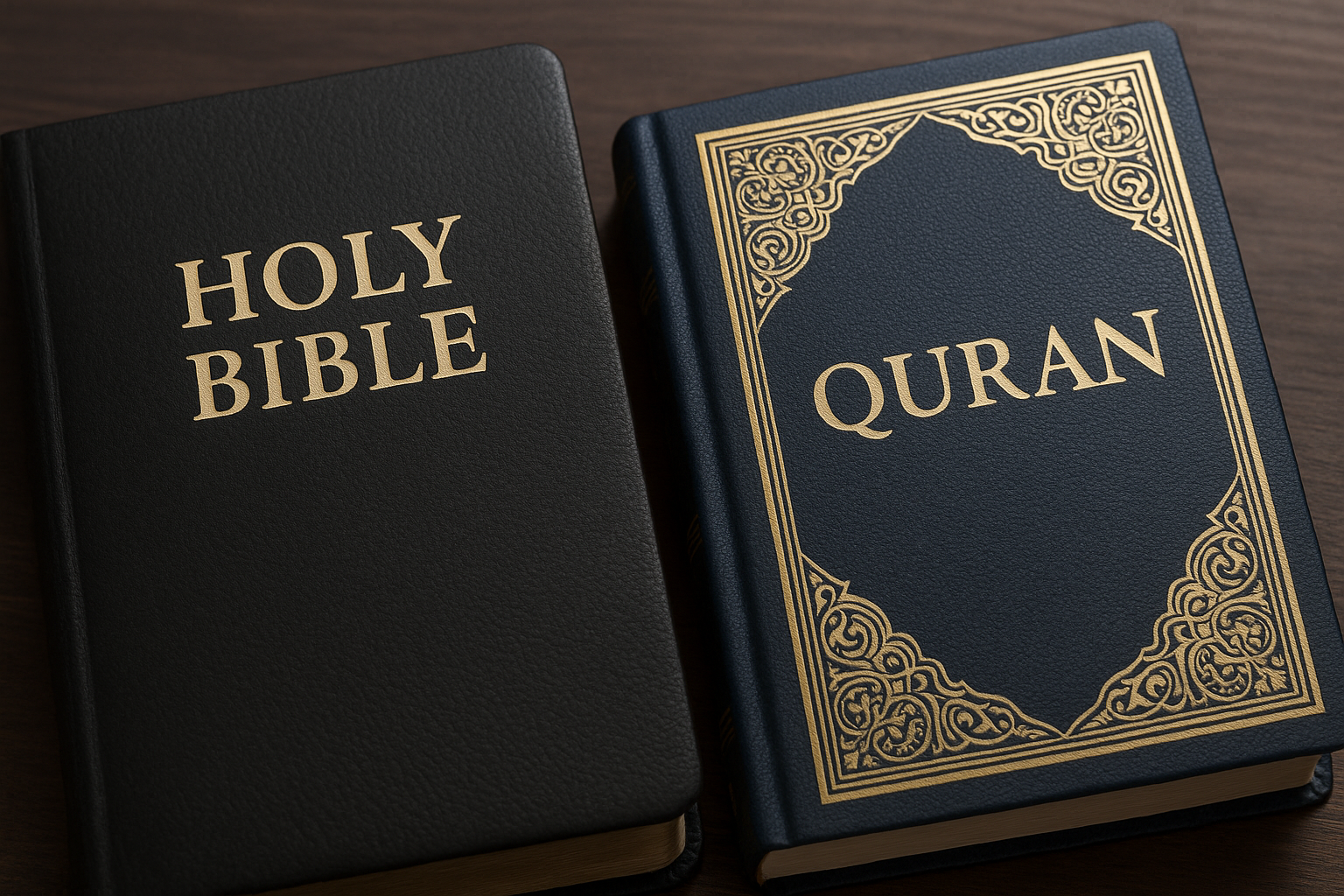
One of the most frequently heard objections from our Muslim friends when we share the Gospel is this: "The Bible has been corrupted." This single claim strikes at the very heart of Christianity. If the Bible is unreliable, then the doctrines of the deity of Christ, the Trinity, the incarnation, the crucifixion, and salvation by grace collapse.
But here lies the paradox. The Qur'an instructs Muslims to believe in the previous scriptures: the Torah, the Psalms, and the Gospel. Yet these very scriptures present a radically different picture of God and salvation than what the Qur'an offers. The contradiction leads us to what is known as the Islamic Dilemma.
Before we tackle the Islamic claims, it's worth addressing two critical questions:
1. What Kind of God Would Let His Word Be Changed?
If God is powerful, wise, and loving, would He allow His revelation to be distorted? Would He mislead generations of believers? Jesus says, "Heaven and earth will pass away, but my words will never pass away" (Matthew 24:35). If God's Word could be corrupted once, what's to stop it from being corrupted again? This undermines trust in any divine revelation.
2. What Historical Evidence Supports the Claim That the Bible Was Corrupted?
The Bible is one of the most well-attested ancient documents in human history. We have:
- Codex Sinaiticus (4th Century)
- Codex Vaticanus (4th Century)
- Codex Alexandrinus (5th Century)
- P66 (early 2nd Century, Gospel of John)
In fact, thousands of manuscripts—Greek, Syriac, Latin, Coptic—stand as witnesses. Dan Wallace, a professor of New Testament Studies, notes these would stack over 6,000 feet high—far more than the Empire State Building!
Also, the Church Fathers quoted from Scripture extensively. One study showed that pre-Nicene Fathers quoted 86% of the Gospels and 96% of John. No other ancient document comes close to this level of preservation.
Yes, there are manuscript variations, but most are spelling errors or insignificant changes. Less than 1% are meaningful and viable, and none alter a core doctrine of the Christian faith.
Many Muslims believe the Qur'an claims the Bible is corrupted. But let's examine this carefully. The verses most cited (Quran 2.75, Quran 2.79 and Quran 3.78) refer to certain Jews "distorting with their tongues," or writing false books after misinterpreting what they heard. These speak of oral distortion and misleading interpretation, not textual corruption of Bible texts. In fact no verse explicitly accuses the Bible of being changed.
Even key Islamic scholars agree. Ibn Kathir wrote: "The Torah and the Gospel remain as Allah revealed them, and not one letter from them was changed."
The Study Quran (a modern Islamic commentary) acknowledges that the biblical texts in circulation during Muhammad's time were likely the same as those approved by Jewish and Christian authorities in the 4th century.
Now consider the verses where the Qur'an affirms the previous scriptures:
- Quran 3.3-4: God sent down the Torah and the Gospel "as a guide for people."
- Quran 5.46-47: The Gospel was given with "guidance and light." Christians are told to judge by it.
- Quran 5.65-66: Some people of the Book are still "on the right course."
- Quran 5.68: People of the Book have no foundation unless they uphold the Torah and Gospel.
- Quran 7.157: Muhammad is prophesied in the Torah and Gospel.
None of these verses suggest the Bible was altered. Quite the opposite: they affirm its inspiration, preservation, and authority.
And consider Quran 10.94: "If you are in doubt, [O Muhammad], ask those who have been reading the Scripture before you." Why refer to corrupted texts for clarity?
Finally, even Quran 5.48 which says the Qur'an is a "guardian" (muhaymin) over previous scriptures. While some understand the verse to mean that the Quran is a "quality control guide" for the revelations previously revealed but not corrupt, the context makes clear it refers to the Qur'an's role for directing the rules Muslims are to llve by, just as the Gospel guides Christians and the Torah guides Jews.
All this leads to a key question:
Is the Bible the uncorrupted Word of God?
If a Muslim says yes, then Islam is false because the Qur'an contradicts the Bible.
If they say no, then Islam is still false because the Qur'an affirms the Bible repeatedly and commands belief in it. The same Bible that has been faithfully preserved hundreds of years before Islam.
That is the Islamic Dilemma.
In short:
- Muslims are told to believe in previous scriptures.
- The Qur'an contradicts these scriptures.
- The Qur'an also affirms these scriptures.
- Therefore, either way, Islam faces a serious theological contradiction.
The Bible is not corrupted. It has been faithfully transmitted, historically verified, and theologically consistent. The Qur'an, while claiming to affirm it, cannot reconcile with it.
The question we must lovingly present to our Muslim friends is simple:
Do you trust the Word of God as affirmed by your own scripture?
The answer to that question may be the first step in seeing the beauty and truth of the Gospel.